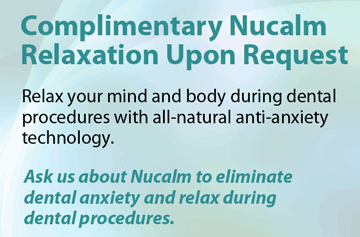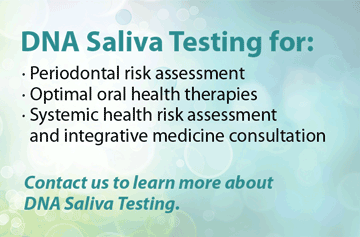
This blog explores the often-neglected connection between good dental health and overall mental wellness, especially in the case of conditions such as Dementia and Alzheimer’s. It emphasizes the significance of maintaining oral hygiene, particularly among older individuals, as it can profoundly impact cognitive health. Research shows that having a healthy mouth is essential for functions such as speaking, eating, and preventing various health issues, including mental health disorders like dementia and Alzheimer’s.
Insights from research on the connection between oral health and the brain:
Research suggests that P. gingivalis produced by periodontal disease can get into the brain through inflamed gums and lead to the buildup of amyloid plaque, which is the main cause of Dementia and Alzheimer’s disease. Let’s take a closer look at some key findings that scientific studies have uncovered on poor oral health and a higher risk of Dementia and Alzheimer’s disease:
- Inflammatory Pathways: When left untreated, gum disease, or periodontitis, can cause chronic inflammation in our mouths, activating inflammatory pathways in the brain and potentially affecting cognitive function.
- Oral Bacteria: Our mouths contain a wide variety of bacteria, some of which are harmless, while others may be harmful. Studies suggest that toxic oral bacteria P. gingivalis can enter our bloodstream and eventually reach the brain, where they might cause neurological damage.
- Relationship Between Periodontal Disease and Cognitive Decline: Numerous studies have shown that the severity of one’s periodontal disease is linked to a higher chance of cognitive impairment – individuals with more advanced gum disease might face an increased likelihood of developing Dementia or Alzheimer’s.
- Reduced Chewing Ability: Poor oral health can lead to tooth loss and decreased chewing ability, resulting in dietary changes, such as a preference for softer and less nutritious foods. Ultimately, this could adversely affect our overall health and cognitive function.
The Role of P. Gingivalis in Periodontal Disease
Periodontal disease refers to a set of oral infections caused by biofilms of oral pathogens that form on teeth surfaces and damage supporting tissues. Periodontal disease ranges from mild gingival inflammation to severe connective tissue destruction, periodontal pocket formation, and tooth loss.
Although over 500 bacterial species are found in human subgingival plaque, studies have identified Porphyromonas gingivalis, an anaerobic Gram-negative bacterium, as the primary cause of chronic periodontitis. P. gingivalis is considered one of the primary agents responsible for the inflammatory events of periodontal disease among major periodontal pathogens.
Ensuring Oral Health for Improved Cognitive Function
To prioritize cognitive health, it’s crucial to maintain good oral hygiene practices, especially for seniors at risk of Dementia and Alzheimer’s disease. Here are some strategies to achieve optimal oral hygiene:
• Schedule Regular Dental Check-Ups: Routine dental visits detect oral health problems early on for timely management and to prevent the development or progression of gum disease, ultimately reducing the risk of related cognitive decline.
• Implement Home Oral Care Practices: Good oral health requires daily brushing and flossing. Dental professionals can offer guidance on proper oral care techniques for effective home practices.
• Eat a Balanced Diet and Stay Hydrated: A nutritious, well-balanced diet and adequate hydration support overall health, including oral and cognitive function.
• Raise Awareness: Educating individuals and healthcare professionals about the link between oral health and mental well-being is essential. Increasing awareness about the pivotal role of oral hygiene in preserving cognitive function will enable people to prioritize and ensure better oral care.
• Encourage Interdisciplinary Collaboration: Collaboration between dental and medical professionals is critical in providing integrated care for early identification of risk factors and effective oral health management in older adults at risk of cognitive decline.
We Treat a Root Cause of Dementia and Alzheimer’s
Dr. Isaac Comfortes’ experience with family members affected by Alzheimer’s and memory loss inspired him to research the link between oral and mental health. His findings led him to identify P. Gingivitis, an oral bacteria, as a source of amyloid plaque in the brain, contributing to memory loss and Alzheimer’s. Consequently, Dr. Comfortes created a treatment protocol that begins with a saliva test to detect P. Gingivitis, enabling the doctor to generate personalized treatment plans to combat this harmful bacteria. Typically, after 3-4 months of treatment, patients are tested to confirm the effectiveness of the treatment. His findings show that following the protocol correctly eradicates the P. Gingivitis bacteria.
Promoting Cognitive Well-being via Proper Oral Hygiene
The relationship between oral health and mental well-being highlights the importance of taking a holistic approach to overall wellness. Dr. Comfortes’ Dementia and Alzheimer’s prevention protocol embodies this approach, recognizing that oral health entails more than just a beautiful smile; it also supports brain and physical well-being.
As cognitive health gains importance in our fast-paced lives, Dr. Comfortes offers a holistic approach that emphasizes the interrelatedness of oral and mental health. This approach helps to promote overall vitality and enables us to achieve healthier teeth, sharper minds, and more active lives.
Dr. Comfortes and Total Health Dentistry of Encino have taken the initiative to increase awareness about the significance of maintaining oral hygiene in preserving cognitive function. They work together with other healthcare professionals to provide holistic care that recognizes the interdependence of our health.







 The general, cosmetic and reconstructive dental practice of Encino dentist Dr. Isaac Comfortes is devoted to restoring optimal oral health, which supports whole body health and enhances the natural beauty of smiles.
The general, cosmetic and reconstructive dental practice of Encino dentist Dr. Isaac Comfortes is devoted to restoring optimal oral health, which supports whole body health and enhances the natural beauty of smiles.